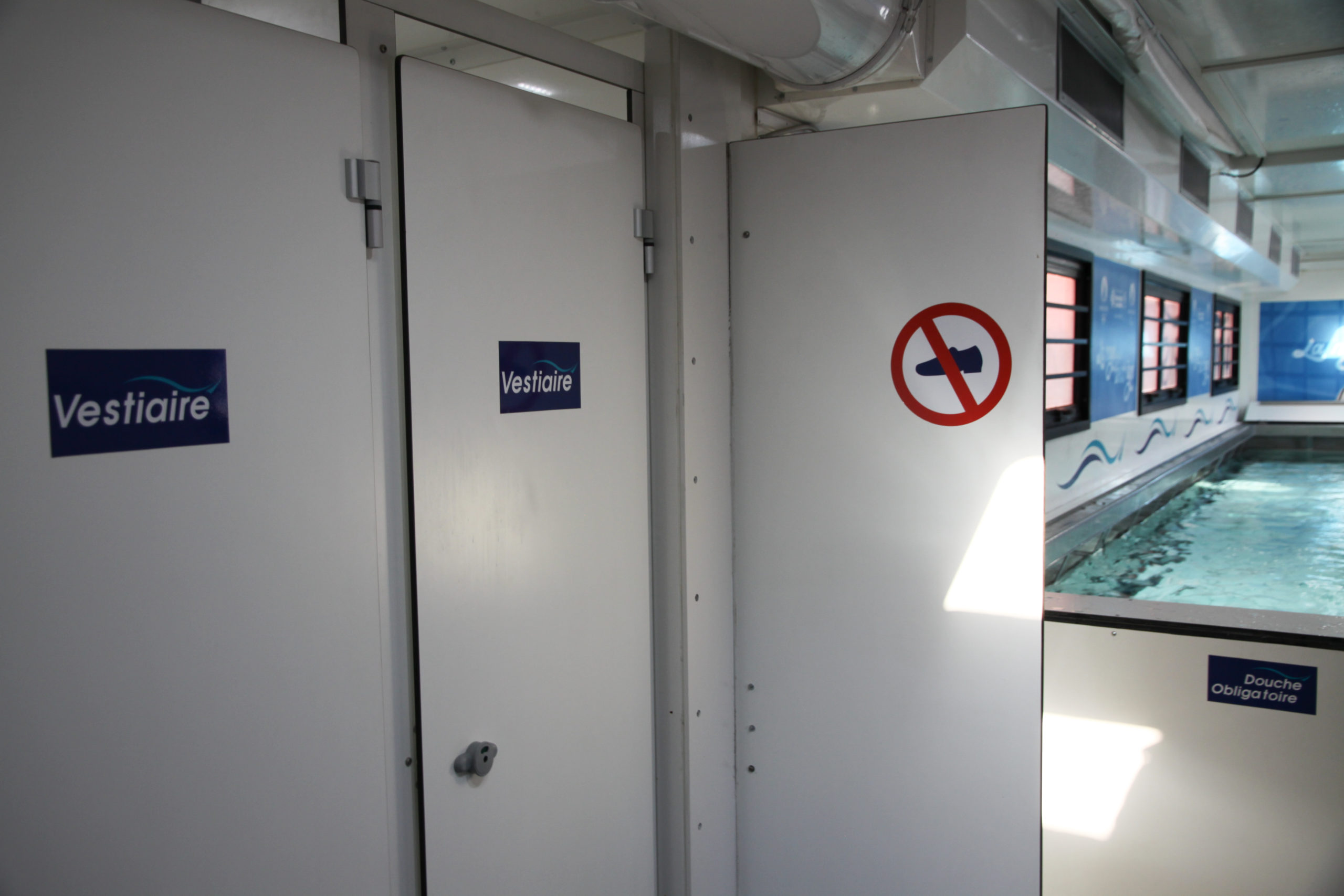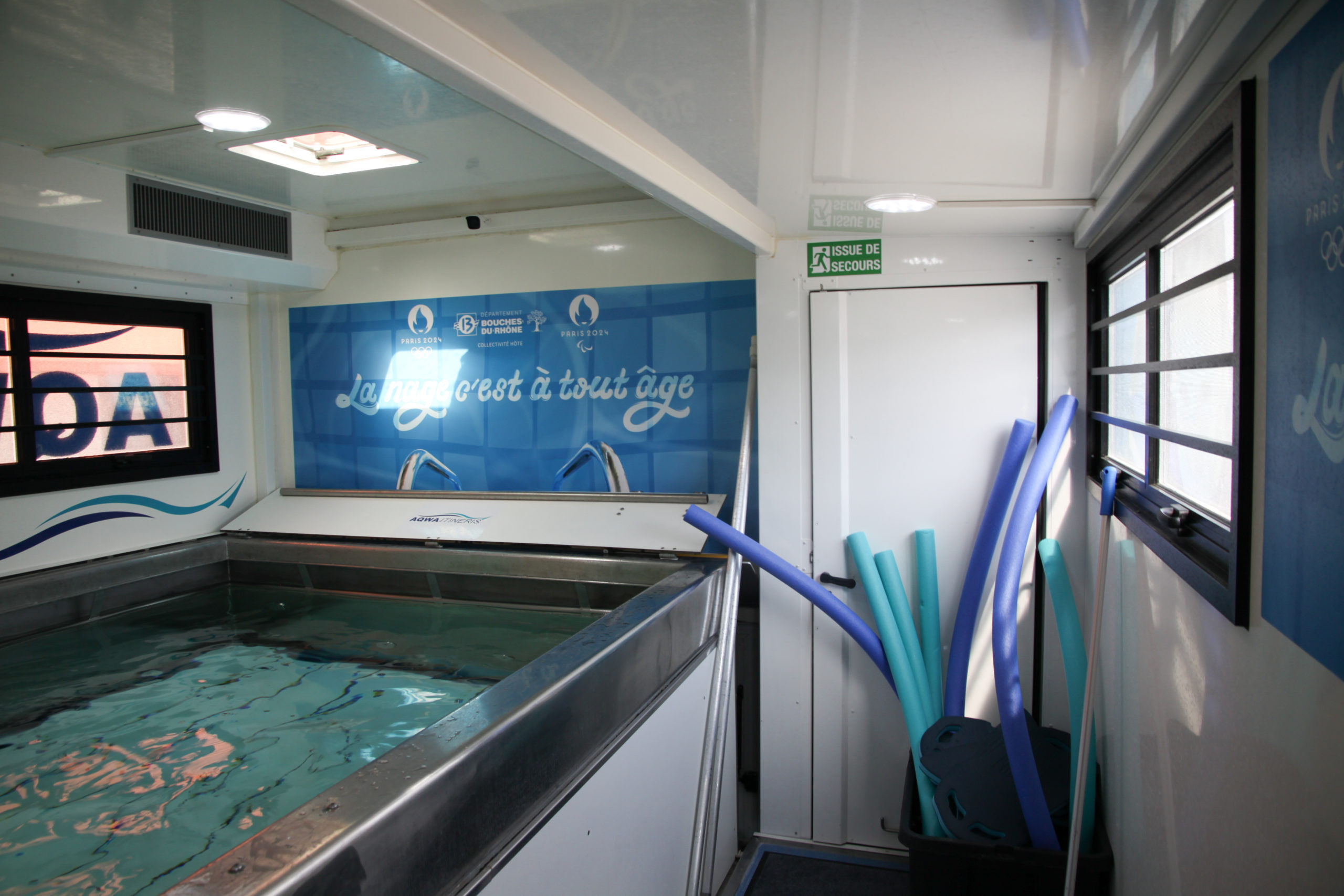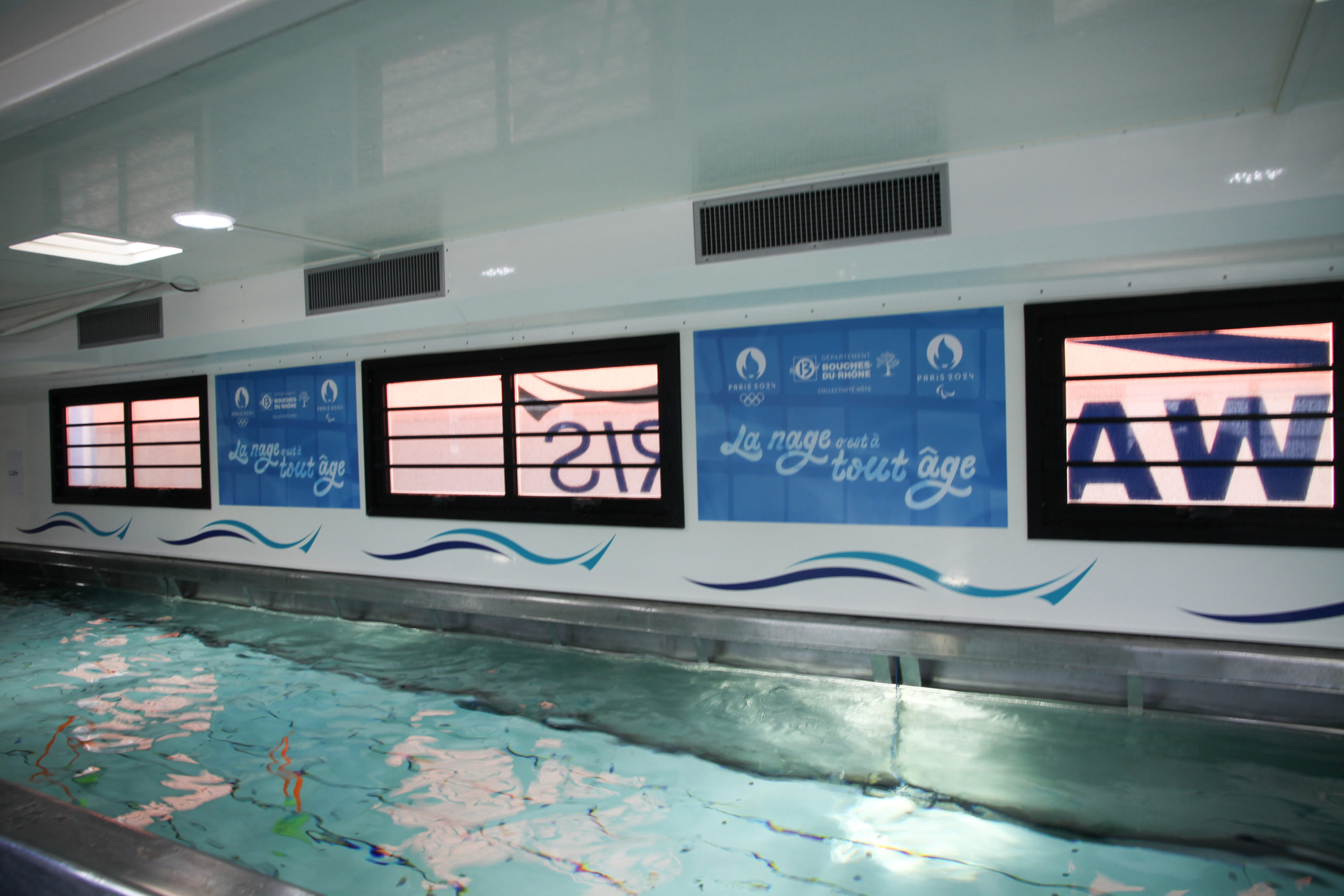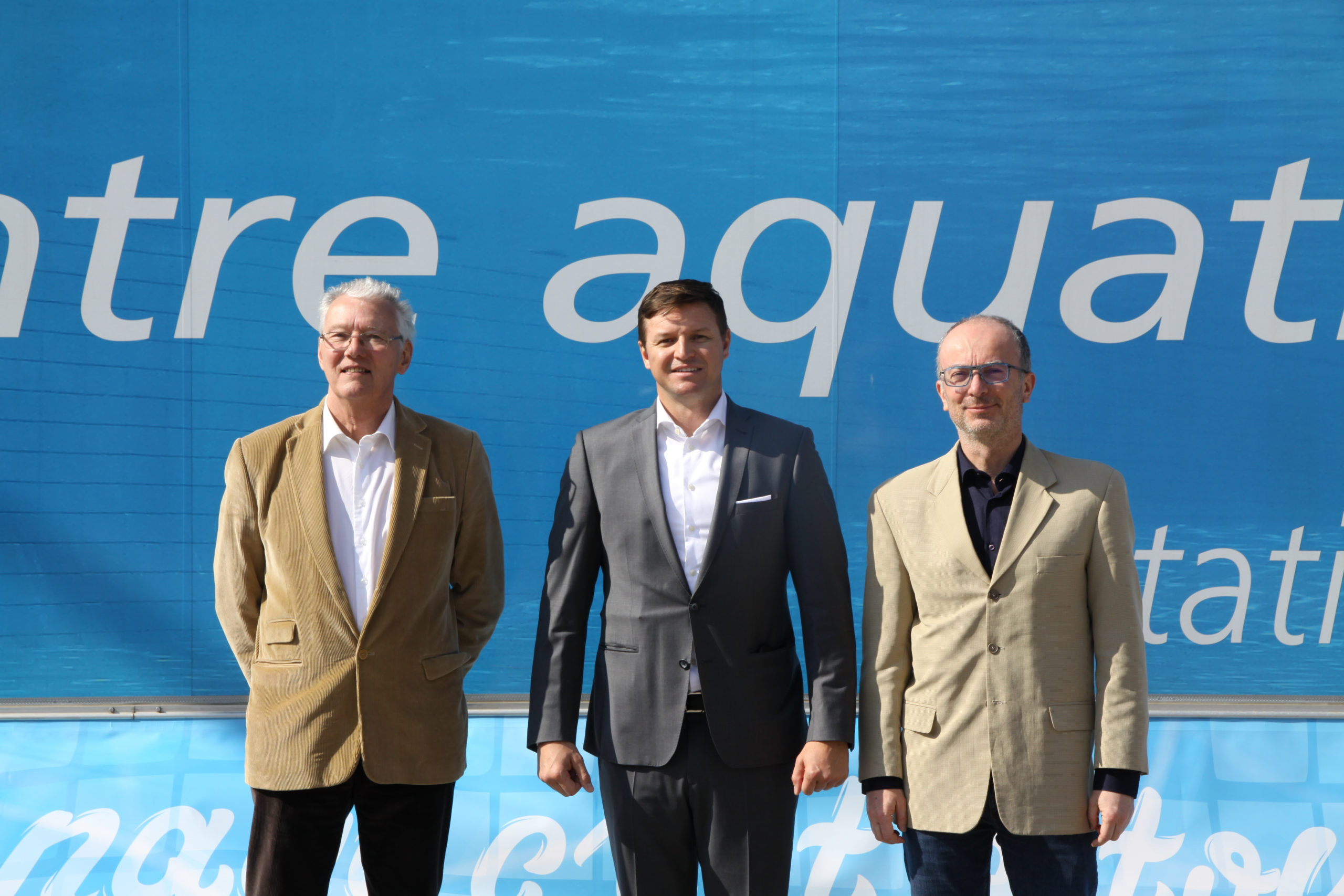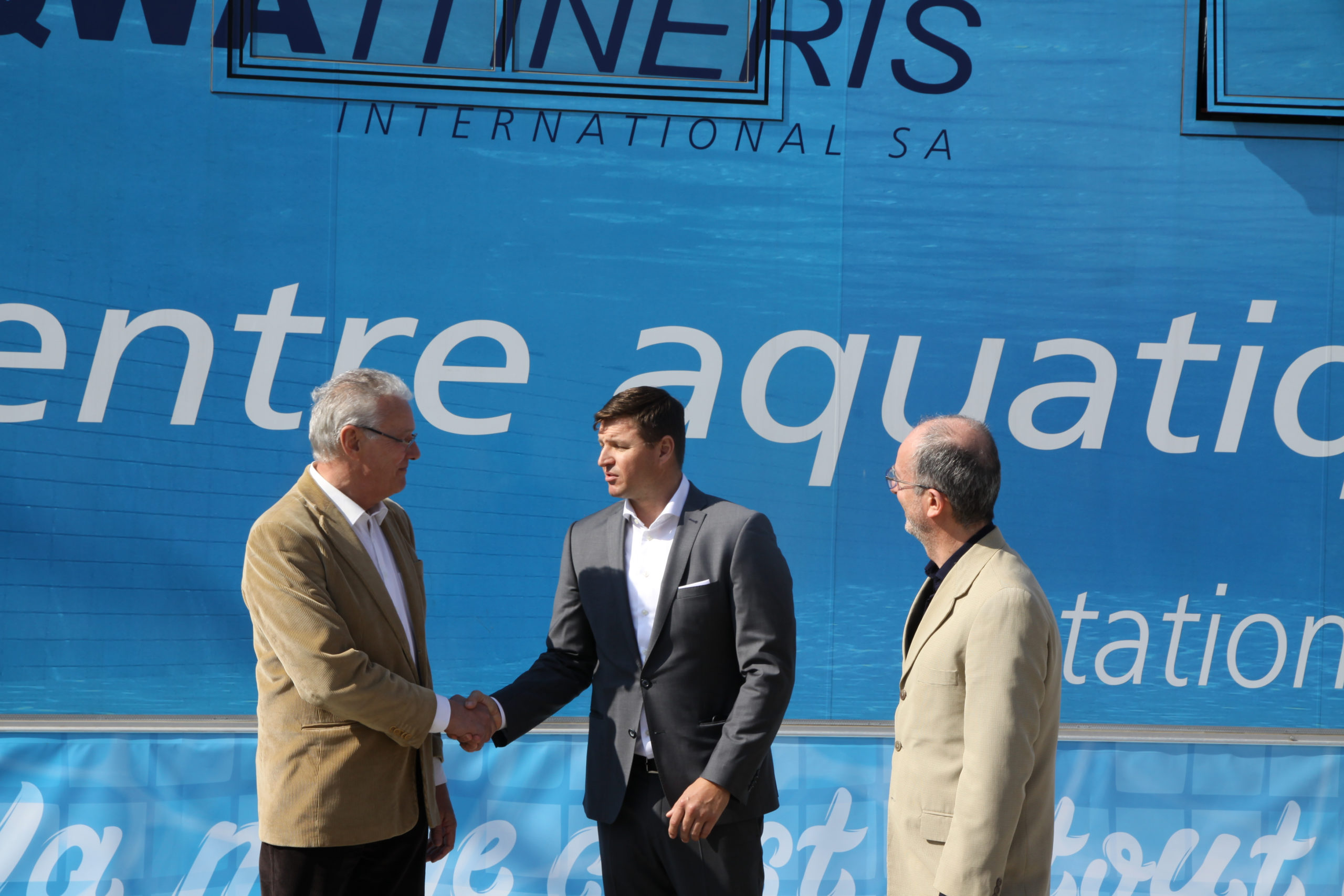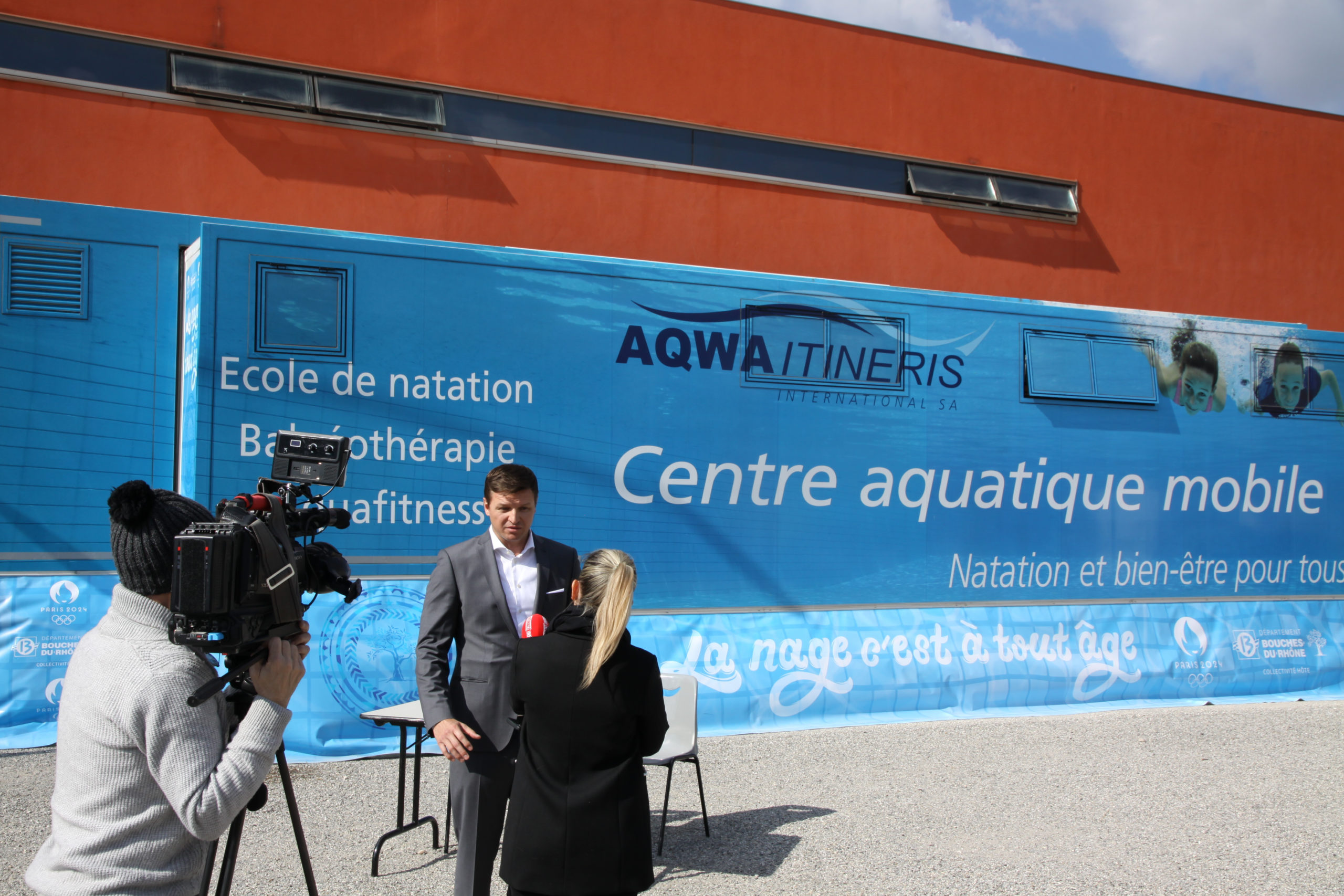
- Published on 4 March 2022
Partnership between Aqwa Itineris and the Princess Charlene of Monaco Foundation
This Friday, March 4th in Auriol, a partnership agreement was signed between the Princess Charlene of Monaco Foundation and the Aqwa Itineris association, in the presence of Mr. Gareth Wittstock, Secretary General of the Foundation, Mr. Olivier Tauty, co-founder and President of Aqwa Itineris France and Mr. Jean-François Buisson, founder of Aqwa Itineris.
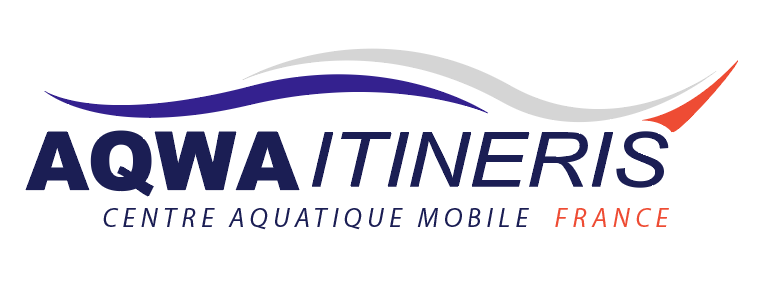
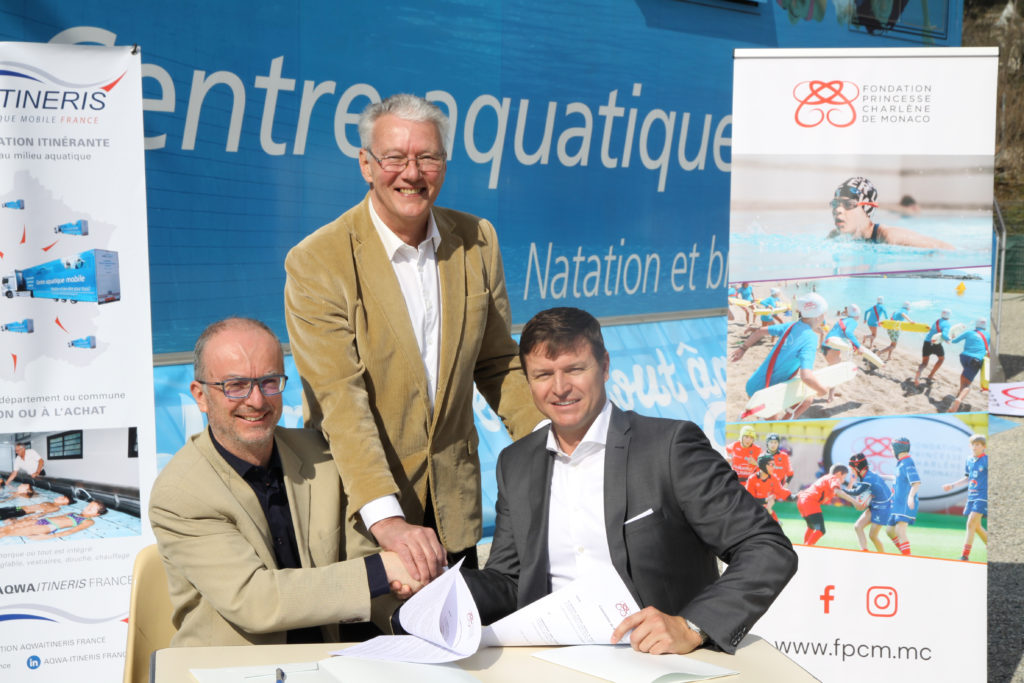
Aqwa Itineris has created a mobile pool to make swimming lessons accessible to all: a solution for communities that do not possess aquatic centres. The pool truck allows the provision of a secure pool to the population of the most isolated municipalities.
It is an innovative educational tool that has all the facilities of a swimming pool in a trailer (changing rooms, a shower, access for people with reduced mobility, and a technical area) and a pool equipped with an adjustable bottom (8m long, 2.10m wide and depth from 0 to 1.20 m).
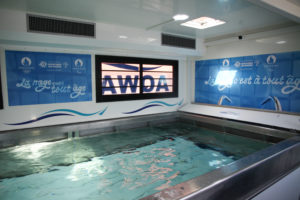
In France, a total of 1,983 drownings occurred between 1 June and 31 August 2021, a figure that increased because of the Covid-19 pandemic with swimming pools closed for long periods, preventing children from learning to swim and being protected from the risk of drowning.
Many municipalities in France would like to have their own swimming pool to offer aquatic activities to young people and respect the national education programs for learning to swim and swimming exams – but the investment costs and efficiency of traditional swimming pools are not always rewarding for these municipalities.
The Princess Charlene of Monaco Foundation, whose primary mission is to fight against drowning without discrimination, supports Aqwa Itineris for this innovative concept of an itinerant swimming pool. From 2022, this new partnership will help municipalities that do not have a suitable infrastructure. The Foundation will undertake, with the selected municipalities, to co-finance the Aqwa Itineris solution for the provision of this infrastructure to schoolchildren, people with reduced mobility and also to the elderly under defined conditions.
